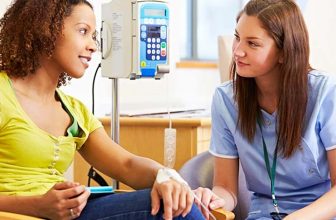
Post-Traumatic Stress Disorder (PTSD) is a complex mental health condition that can significantly impact an individual’s life. In cases where outpatient therapy may not suffice, inpatient rehabilitation from reputable facilities such as the Tricare rehab facility becomes a viable option.
This article aims to shed light on what individuals can expect from inpatient rehab for PTSD, emphasizing the key components that contribute to a comprehensive and effective treatment plan.
Trauma-Informed Care
Central to inpatient rehabilitation for PTSD is the concept of trauma-informed care. This approach recognizes the widespread prevalence of trauma and emphasizes understanding and responding to the effects of trauma in the recovery process.
Inpatient facilities prioritize creating a safe and supportive environment where individuals feel validated and empowered to share their experiences. This foundational element sets the stage for a therapeutic alliance between patients and the treatment team.
A Framework for Recovery
Inpatient rehab for PTSD operates within a structured framework designed to address the unique needs of individuals grappling with the aftermath of trauma.
Treatment plans are tailored to each patient, incorporating evidence-based therapies such as cognitive-behavioral therapy (CBT), eye movement desensitization and reprocessing (EMDR), and dialectical behavior therapy (DBT).
These therapeutic modalities aim to help individuals process their traumatic experiences, challenge negative thought patterns, and develop healthier coping mechanisms.
A Calming Environment
Creating a calming and secure environment is paramount in inpatient rehabilitation for PTSD. Facilities are often designed with soothing aesthetics, private spaces, and amenities that contribute to a sense of safety.
This environment is crucial in helping individuals feel more at ease, fostering a conducive atmosphere for therapeutic work and self-reflection.
Social Support
Social support plays a pivotal role in the rehabilitation process. In inpatient settings, individuals have the opportunity to connect with peers who have experienced similar challenges.
Group therapy sessions provide a platform for sharing, empathizing, and learning from others’ journeys. Building a supportive community within the rehabilitation facility can contribute significantly to the healing process, offering a network that extends beyond the confines of the treatment program.
Holistic Therapies
In addition to traditional therapeutic approaches, inpatient rehab for PTSD often integrates holistic therapies to address the diverse needs of individuals. Mindfulness, breathing practices, yoga, exercises, art therapy, and recreational activities serve as complementary tools to enhance emotional regulation, stress management, and overall well-being.
The inclusion of these holistic modalities recognizes the interconnectedness of mental, emotional, and physical health in the recovery journey.
Trauma Processing and Reexamination
A crucial aspect of inpatient rehabilitation for PTSD involves trauma processing and reexamination. Through evidence-based therapeutic techniques, individuals are guided in revisiting and processing traumatic memories in a safe and controlled environment.
This process aims to diminish the emotional charge associated with the trauma, empowering individuals to reframe their narratives and regain a sense of control over their lives.
Wrap Up
Inpatient rehabilitation for PTSD offers a multifaceted and integrative approach to healing, addressing the complex nature of trauma.
By implementing the above approaches, these programs strive to empower individuals on their path to recovery. While the journey may be challenging, the comprehensive support provided in inpatient rehab serves as a beacon of hope for those seeking to reclaim their lives from the grip of PTSD.









